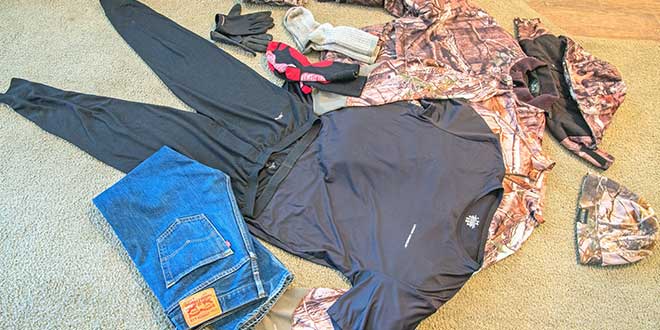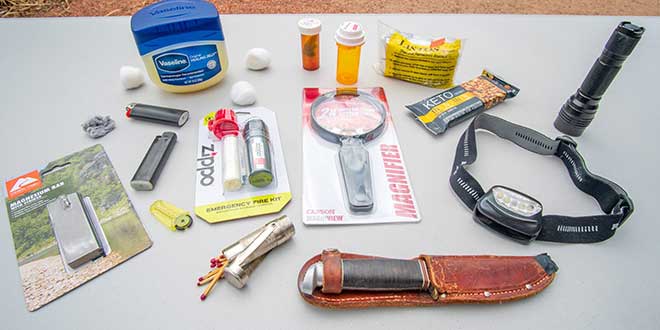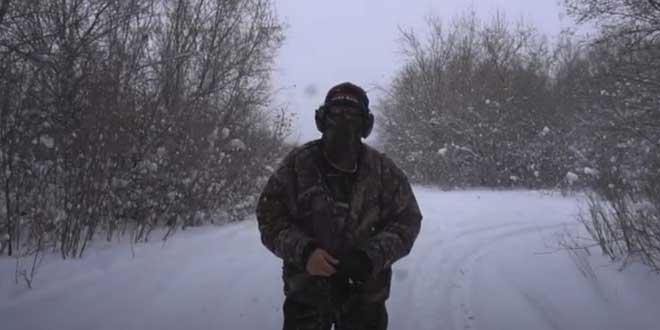Imagine you are duck hunting alone on a river in late December. It’s a blustery, cloudy day, with snow on the ground, but you’ve already killed three ducks. The air temperature hovers in the high twenties. Every time you breathe, your breath lingers in a cloud surrounding your head.
Around 2 p.m., a winter storm starts to quickly dump snow and ice is building up around you. As you continue to hunt, the wind picks up and decreases the ambient temperature to the low twenties. The extremely low temperature kills your cell phone battery, which is stowed in a Ziploc bag inside your camouflage coat pocket.

Right before sunset, you manage to harvest two more ducks. As you wade through the water to retrieve the last one, you trip on an underwater branch and fall face-first into the freezing water. You make it back to dry land, but are worried that hypothermia will set in before you can walk the two miles back to the truck. It is getting dark, the snow has disoriented you and obliterated all walking trails.
You decide to spend the night and will try to hike out at first light in the morning. But are you prepared to spend the night? What equipment will you need to survive overnight in cold temperatures? What steps should you take and in what order?

Here are 10 tips that may help you make the best choices to get through the night safely.
- Don’t panic. Stay calm. Thinking methodically and critically can save your life in any emergency situation.
- Wearing multiple layers, including gloves and a thermal base layer, is the best way to stay warm in winter. You can remove the outmost layer if it gets wet or you get too hot.
- Make a shelter. Either use the existing snow or make a lean-to from dead branches and vegetation. Make sure the floor is dry and cleared of snow and you have adequate ventilation for a fire.
- Always have two or three different fire starters with you. Examples of good fire starters include waterproof matches, a lighter, ferrocerium rod, a magnifying glass or magnesium flint striker blocks.
- Start a fire. Find a dead tree and remove the lowest branches; these will be the driest. Also, carry some dry fire fuel in an empty Altoids tin, 35 mm film canister or prescription drug vial. Fuel tinder can include lint from the clothes dryer, Vaseline infused cotton balls or purchase TinderQuik Firestarting tabs. Absent fuel, find a dead log and use a knife to remove layers till you see dry wood. Then cut thin shavings for tinder.
- Carry an emergency mylar thermal blanket; they are waterproof and will retain body heat.
- Have a headlight or flashlight, and extra batteries, to see in the dark.
- Before you go, tell someone exactly where you are going and when to expect you back. That way a search and rescue team will know where to begin the search if you go missing.
- Always carry a high-fat content energy bar with you when hunting. Fats provide higher energy calories per ounce than carbohydrates do. You never know when you might have to spend an unplanned night outdoors with no food. In this situation, you could cook some duck breasts and legs over your fire.
- A fixed blade bushcraft knife, survival knife or folding hunting knife would be perfect to field dress ducks and cut wood for a fire.
 New Mexico Wildlife magazine Conserving New Mexico's Wildlife for Future Generations
New Mexico Wildlife magazine Conserving New Mexico's Wildlife for Future Generations
